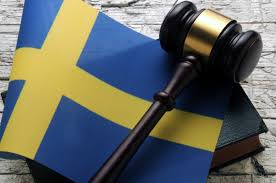Ericsson Pays $1 Billion for Systemic FCPA Violations (Part I of II)

The Sweden-based telecommunications company, Ericsson, agreed to a pay a total of $1 billion (yes, billion with a “B”) for FCPA violations.
Ericsson entered into settlement agreements with DOJ and the SEC. Ericsson agreed to pay a criminal penalty of over $520 million and approximately $540 million to the SEC. An Ericsson subsidiary in Egypt entered a guilty plea to an FCPA conspiracy to violate the anti-bribery, books and records, and internal controls provisions. The parent company entered into a three-year deferred prosecution agreement (DPA), which included the requirement to retain an independent monitor.
Ericsson’s bribery conduct was pervasive and systemic. As outlined in the plea papers, over a 17 year period, Ericsson engaged in bribery through payments of cash, gifts and other items of value involving at least five countries, Djibouti, China, Vietnam, Indonesia and Kuwait.
Under the FCPA Corporate Enforcement Policy, DOJ determined that Ericsson did not voluntarily disclose the issue, the nature and scope of violations was serious and included illegal conduct committed by senior executives and occurred in five countries over a 17 year period.

Ericsson received only partial credit for its cooperation and remediation because it failed to disclose two significant matters; produced certain materials in an untimely manner; and failed to take appropriate disciplinary actions with regard to certain executives and employees involved in the conduct.
As noted by DOJ, Ericsson’s compliance program was inadequate at the time the violations occurred, and Ericsson is currently implementing enhanced controls to improve its compliance program.
Based on all of these factors, DOJ awarded Ericsson only a 15 percent reduction from the bottom of the applicable United States Sentencing Guidelines. Further, because Ericsson failed to implement all of the planned compliance enhancements and did not test its new compliance improvements, DOJ imposed an independent compliance monitor for three years.

As part of the DPA, Ericsson agreed to cooperate with ongoing DOJ investigations. It is not known whether or not DOJ will prosecute any individuals involved in the bribery conduct. Given the length of time involved, any individual prosecutions may be difficult because of potential statute of limitations issues. FCPA prosecutions are subject to a five-year statute of limitations.
Under the DPA, Ericsson’s CEO and CFO are required to certify to the DOJ that Ericsson has met specified disclosure obligations, including a specific requirement that Ericsson disclose any potential violation that occurs during the three-year period. Each certification is defined as a “material statement” for purposes of the criminal code’s false statement offense 18 U.S.C. §§ 1001.















